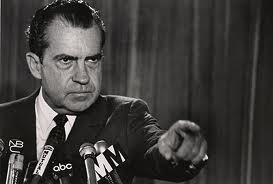Impeachment, Ukraine, and The Midnight Special
Reading Time: 2 minutes.

With all of the renewed interest in potential impeachment proceedings regarding President Trump, a replay of this post from 2017 seems in order: Impeachment Lessons and The Midnight Special
Much may unfold, but here are three notes that may be relevant.
1. “Impeachment lite.” Thus far at least, and even after Speaker Pelosi’s announcement and the advent of the Ukrainian-phone-call-whistleblower, what we have seen is not an impeachment proceeding (or investigation, or inquiry, or whatever term one prefers), at least compared to the available historical examples. An impeachment proceeding will likely start with a resolution, which is a formal and serious invocation of congressional authority. Unless the matter is sent to a standing committee, there would then be an impeachment committee established with select members; its own rules; and its own rather extensive professional staff whose only job is to conduct an impeachment investigation; draft the necessary materials (such as reports and articles of impeachment); and support the members during hearings.
Thus far, we have not seen anything like that. Rather, what we have seen is a multifaceted use of the congressional oversight role. Of course, we may see actual impeachment proceedings in the future, but calling constitutionally grounded congressional oversight activity “impeachment“ is not entirely accurate and brings with it some risk of diminution of the solemnity and vigor of real impeachment proceedings.
2. Political peculiarity of impeachment. Because impeachment occupies a unique position at the intersection of partisan politics, constitutional power, and legal uncertainty, a legislator can be pulled in several different directions at once. What the people back home want; what the caucus wants; and what the individual member wants may very well be three different things. This unusual ability of “impeachment“ to create internal conflict as well as external may be one reason why we see the “impeachment lite“ described above. (We definitely saw it, for example, when I was Special Counsel to the Alabama House Judiciary Committee for the impeachment of then-Governor Robert Bentley).
3. Impeachment solemnity and constitutional clumsiness. Impeachment considerations take place in the political arena, but one hopes that they do not become trivialized through overuse (or even over-discussion). The impeachment of any chief executive is an anti-democratic act (one recognized by the constitution) because it overturns an election. In addition, it is a clumsy, blunt instrument that is not readily controllable. One of the lessons learned from the Bentley impeachment proceedings is that the process can involve unintended consequences that may be necessary to suffer but which are not desirable.